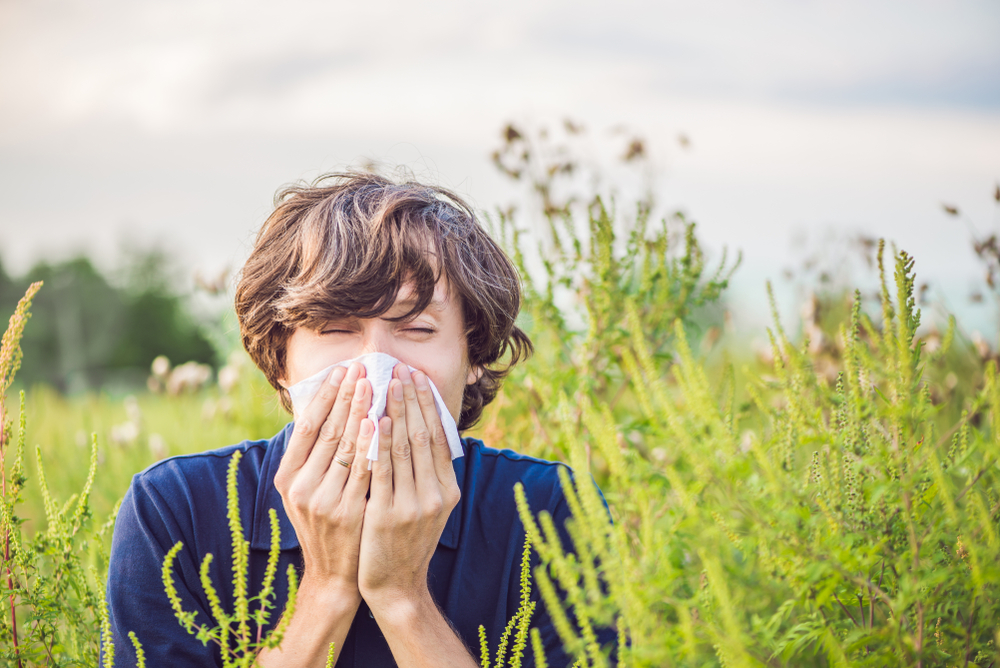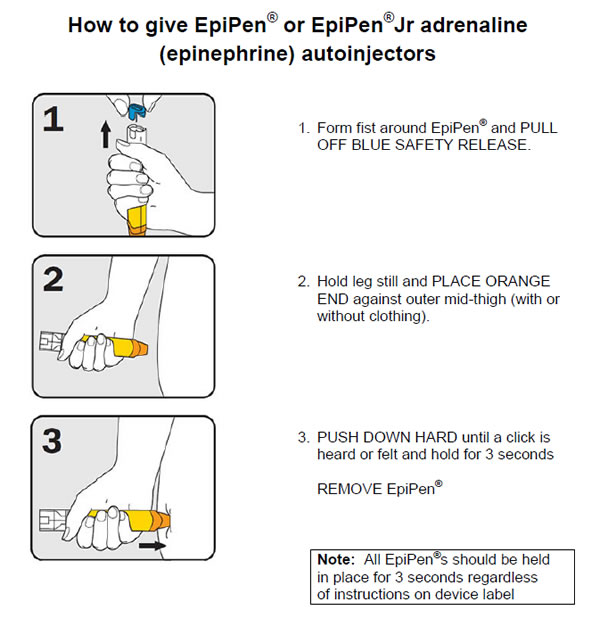Written by Home Doctor Brisbane Team
What is an allergy?


Allergies are a common occurrence in Australia – on average one in five of us experience an allergic reaction at some point in our lives.
An allergic reaction occurs when a person’s immune system reacts to substances in the environment around them, that are harmless for most.
From 2006 to 2016, hospital admissions in Australia for severe allergic reactions doubled overall and according to a study by the Australian Society of Clinical Immunology and Allergy (ASCIA), in children aged between zero and four, admissions increased five-fold.
What are the symptoms of an allergy?
Allergic reactions range from mild to life-threatening.
Telling the difference between a mild allergy or another illness (like the common cold) can sometimes be difficult. By writing down symptoms, time of year experienced, duration and any reoccurrences, a pattern can be established which may determine whether symptoms are allergic. This can be used to prompt a visit to an immunology specialist.
Common signs of a mild allergic reaction include:
- Hives
- Welts
- Skin redness
- Swelling in the face, lips and eyes
- Vomiting
- Abdominal pain
- Tingling in the mouth.
Severe allergic reaction or Anaphylaxis symptoms include:
- Difficulty (or noisy) breathing
- Swelling of the tongue
- Swelling or tightness in the throat
- Difficulty talking and/or hoarse voice
- Wheeze or persistent cough
- Persistent dizziness or collapse
- Pale and floppy (in young children)
- Heart palpitations
- Weakness
Common forms of allergies
Allergies are triggered when a body’s antibodies identify an outside substance as harmful even when it is not. Allergies are not genetic and exist in many common forms:
- Food allergy
The body’s immune system keeps you healthy by fighting off infections and other dangers to good health. A food allergy reaction occurs when your immune system overreacts to a food or a substance in a food, identifying it as a danger and triggering a protective response. Food allergy symptoms are most common in babies and children, but they can appear at any age. You can even develop an allergy to foods you have eaten for years with no problems.
- Skin allergy
There are several different types of skin allergy reactions that allergists treat.
Eczema (also commonly called atopic dermatitis) typically results in dry, sensitive skin. You may experience red itchy patches. Eczema can come and go over time, and flare-ups may crack, ooze, and itch severely. It is very itchy and can vary in severity from mild (just dry skin) to severe (red, scaly, thick, fissured and oozing skin).
Hives (also known as urticaria) are raised itchy bumps. Typically hives appear reddish and will “blanch” (or turn white) in the centre when pressed.
Contact dermatitis is typically caused by exposure to an allergen or irritant. If you have red itchy bumps on your skin, especially at the site of contact with some potential irritant or allergen, you may be experiencing contact dermatitis.
- Dust allergy
Dust mites are microscopic organisms that feed off house dust and the moisture in the air. They are one of the most common indoor allergens, and symptoms can be present year-round. In addition to allergic rhinitis, dust mite allergy can also trigger asthma and flares of eczema.
- Insect sting allergy
Stings from five insects – honeybees, hornets, wasps, yellow jackets and fire ants – are known to cause allergic reactions to the venom injected into the skin. While most people are not allergic to insect venom, the pain from a sting may cause them to mistake a normal reaction for an allergic one.
- Pet allergy
If your nose runs, your eyes water or you start sneezing and wheezing after petting or playing with a dog or cat, you likely have a pet allergy. A pet allergy can contribute to constant allergy symptoms, as exposure can occur at work, school, day care or in other indoor environments, even if a pet is not present.
- Eye allergy
Eye allergies develop when the body’s immune system becomes sensitised and overreacts to something in the environment that typically does not cause a problem in most people. An allergic reaction can occur when that “something” (called an allergen) comes into contact with antibodies attached to the mast cells in your eyes; the cells respond by releasing histamine and other substances or chemicals that cause tiny blood vessels to leak and the eyes to become itchy, red and watery.
- Drug allergies
While you may not experience allergic symptoms the first time you take a drug, your body could be producing antibodies to it. As a result, the next time you take the drug, your immune system may see it as an invader, and you’ll develop symptoms as your body releases chemicals to defend against it.
Penicillin causes most allergic drug symptoms. Just because you show allergic symptoms after taking penicillin doesn’t mean that you will react to related drugs, such as amoxicillin, but it’s more likely. Also, just because you had a reaction to penicillin (or any other drug) at one time doesn’t mean you will have the same reaction in the future.
- Latex allergy
Latex is a common component of many medical and dental supplies. Allergic reactions to latex products occur because certain people become allergic to either the proteins found naturally in the substance, or to the industrial chemicals (such as mercaptobenzothiazole) added during manufacturing. In most cases, latex allergy develops after many previous exposures to the material.
- Mould allergy
Moulds are tiny fungi whose spores float through the air. They like damp environments and need four things to grow: food, air, appropriate temperature and water. Moulds can be found outdoors, in homes and in other buildings. Everyone breathes in mould spores in the air, but some people have an allergic reaction or asthma symptoms if exposed to too much of this fungus. If you are allergic to mould, your immune system is overly-sensitive to specific mould spores and treats them as an allergen.
What to do when you have an allergic reaction
Anaphylactic shock can be life-threatening. Those with severe allergies should always carry necessary medication, like an EpiPen, in case of reaction. If you’re unsure how to administer an EpiPen see the diagram below.


Diagram sourced from Australian Society of Clinical Immunology and Allergy.
If a sufferer does experience a reaction and doesn’t have medication on hand, health professionals or emergency services must be contacted immediately.
In the event a sufferer has passed out from a reaction, they need to be laid on their back, with their legs elevated and covered with a blanket to help prevent shock. An EpiPen must be administered as soon as possible.
Those suffering mild allergies can use over-the-counter-medication, like anti-histamines, to relieve symptoms.
Allergy treatment
Preventing an allergic reaction lies in knowing what you are allergic to and if possible, avoiding that trigger. Prevention also means identifying the symptoms before they manifest into a full reaction.
Over-the-counter medication is available to help prevent most allergic reactions.
If you suspect you are susceptible to having an allergic reaction, it is best to visit a doctor. Doctors may refer you to an immunology clinic or allergy specialist, to investigate which allergy you may have and assist you in pin-pointing triggers.
Another prevention measure may be keeping a diary to identify if allergies are getting worse or a new allergy has developed.
For those with serious allergies (like peanuts or penicillin), a medical bracelet with information about triggers can help prevent further harm.
Can allergies be cured?
According to our after-hours doctors, as we age, our immune system becomes stronger and we develop a tolerance to less severe allergic ‘triggers’. While 1 in 20 Australian children have a food allergy, by the time they are adults, the ratio broadens to 2 in 100 adults.
Allergic reactions in children to milk, wheat and even eggs are usually ‘outgrown’ by the time they become adults, but allergies developed in adulthood, especially to foods like peanuts, are more than likely permanent.




